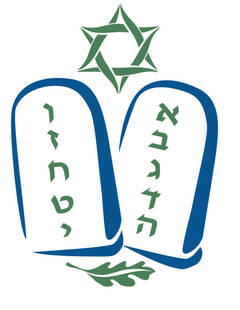05/17/2022 04:16:23 PM
This year the focus of these articles and our Tuesday Lunch and Learn events has been how the headlines and our ancient tradition meet. Today (Tuesday, May 17) will be the last Lunch and Learn until the fall. We will speak about Jewish views on abortion/reproductive choice. Please join us in the Moadon at noon. Here is a quick view:
The main statement of Rabbinic Judaism on the subject occurs in the Mishnah (Oholot 7:6). It is from ca. Second Century (CE), i.e., 1800 years ago.
If a woman is having trouble giving birth, they cut up the child in her womb and brings it forth limb by limb, because her life comes before the life of [the child]. But if the greater part has come out, one may not touch it, for one may not set aside one person's life for that of another.
While brutal, the meaning is clear. One may not murder a person to save the life of another. Therefore, once the greater part of the child is out of the womb, the child is considered born and the child is a person, according to Jewish law. However, to destroy a fetus is not an act of murder. Later in the Babylonian Talmud it is taught that one may kill a potential murderer if this is the only way to save the intended victim. This rodef (pursuer) forgoes its rights because of the threat it poses to another. One might reason that a child (more than halfway emerged from the womb) is also a potential murderer and thus should be stopped, but the ancient Rabbis declared that the result of natural causes cannot be blamed on the baby. The great medieval commentator Rashi summarizes it this way: A person cannot be prevented from harming another due to natural causes, but a fetus must be stopped if it endangers another.
The upshot of this is that in Judaism there is agreement that the fetus should be sacrificed to save the life of the mother, and this is not murder.
If we are speaking about non-life-threatening cases, then there is a lot more disagreement of when abortion is considered permissible. More conservative commentators would say abortion is permitted when the mental health of the mother is at stake, or rape was the cause of the pregnancy. The Reform Movement has a position more liberal, declaring that:
All life is sacred in Judaism, but women are commanded to care for their own health and well-being above all else. Although an unborn fetus is precious and to be protected, Reform Judaism views the life and well-being of the mother as paramount, placing a higher value on existing life than on potential life. Therefore, there are several instances when Judaism not only condones abortions but mandates them.
…If the mental health, sanity, or self-esteem of the woman (for example, in the case of rape or incest) is at risk due to the pregnancy itself, Jewish teaching permits the woman to terminate the pregnancy. Because of the fundamental Jewish belief in the sanctity of life, abortion is viewed, under some circumstances, as both a moral and correct decision. This same belief underscores the vital need for medically accurate sexuality education and for high-quality family planning services. (From ReformJudaism.Org).
Based on these teachings, Reform Judaism comes down on the side of reproductive rights. Such decisions are not easy, but that’s what a religious heritage is created for: helping us navigate through the weighty subjects of our days.






